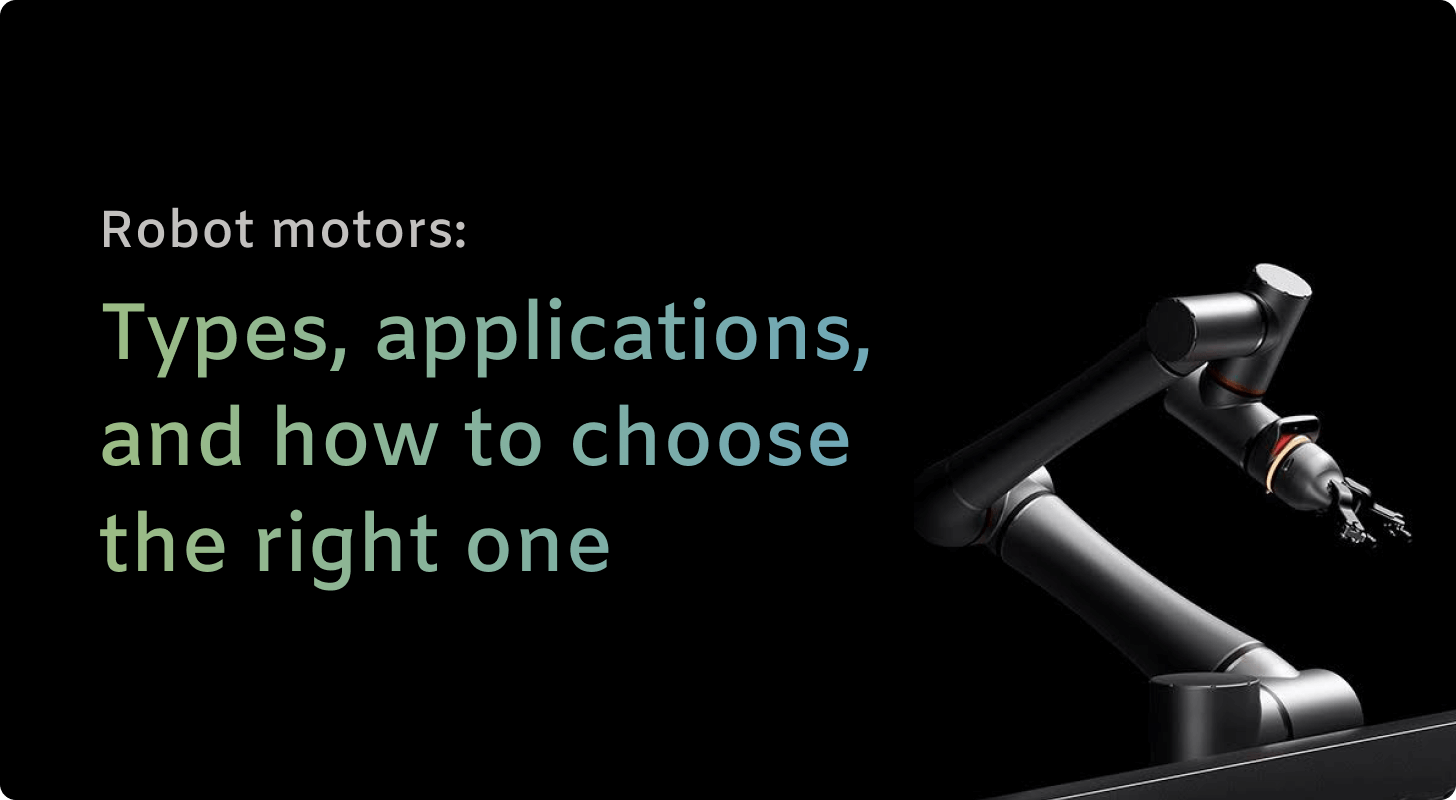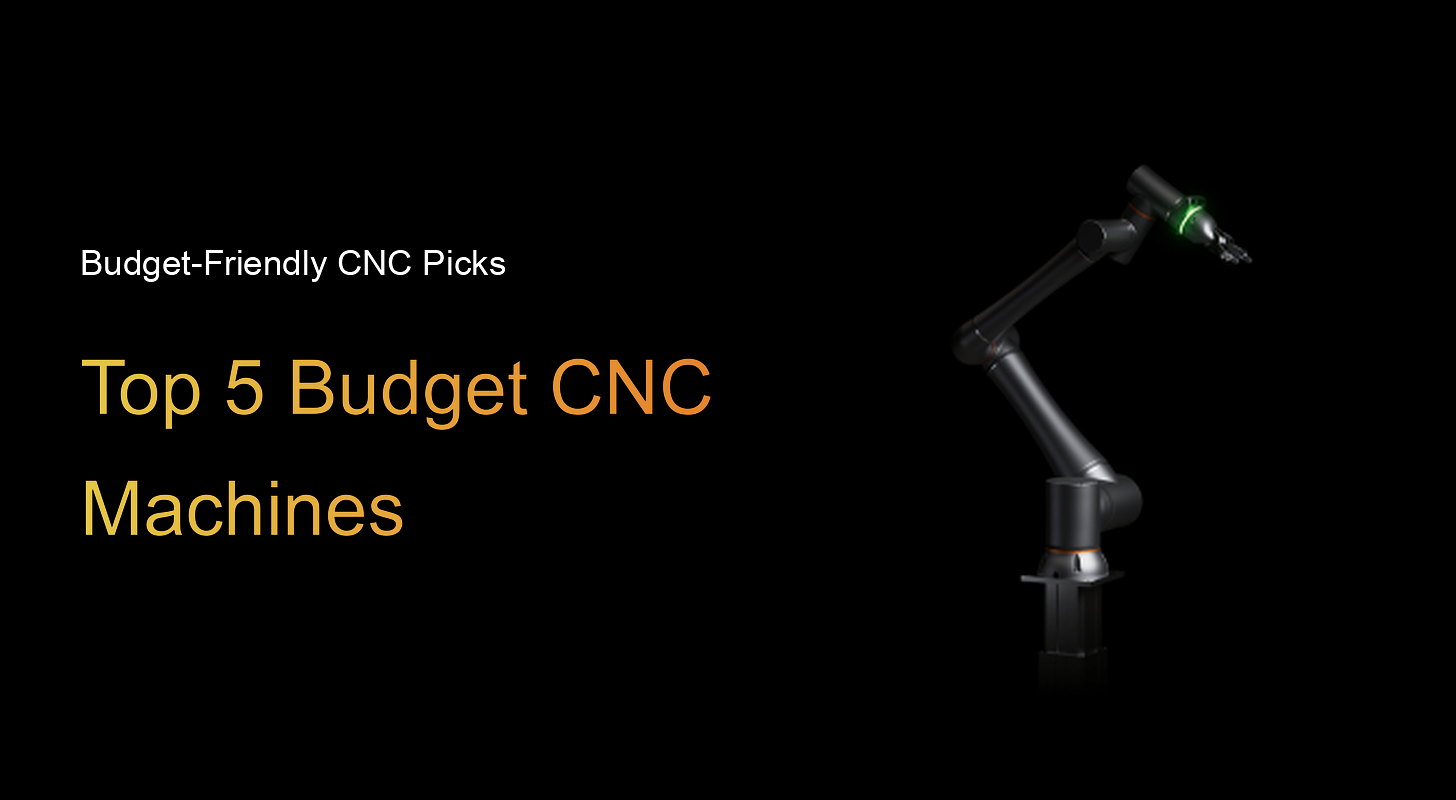While college freshmen rack up debt studying engineering, robotics technicians who skipped university are earning $50,000 to $70,000 in their first year.
No degree required. Just hands-on training and a paycheck from day one.
In 2026, manufacturers can't find enough people to program and maintain factory robots. Tesla, Amazon, and thousands of smaller companies are hiring high school grads into paid apprenticeships. The automation boom created a massive talent shortage, and companies stopped waiting for universities to fill it.
How to get into robotics without a degree
You don’t need a university degree to build a career in robotics. Many entry-level robotics jobs are open to high school graduates who have the right technical skills or are willing to learn through on-the-job training.
- Robotics technicians are in high demand. These roles involve assembling, maintaining, and troubleshooting robots in factories, warehouses, or labs. Recent salary trackers show $121k to $137k+ average base for robotics engineers in the U.S., with higher totals for AI-heavy teams.
- Operator roles are another option. Robot operators monitor automated lines, load parts and tools, check quality, and handle basic faults. These positions give you hands-on experience with industrial robots and can lead to technician or programming jobs.
- Robotics apprenticeships are one of the best ways to enter the field without a degree. Programs offered by companies like Siemens, Rockwell Automation, or KUKA train you while paying a salary, letting you earn industry-recognized credentials.
- Beyond direct robot work, there are support roles such as CAD design, robot sales, quality testing, and maintenance support. These jobs give you exposure to robotics environments and valuable experience that can later transition into technical or engineering positions.
How to become a robotics engineer
To become a robotics engineer, you usually earn a degree in electrical, computer, or mechanical engineering, then specialize in control, mechatronics, and embedded software. You can also combine work experience with targeted certifications and apprenticeships.
But a degree isn’t the only way forward. Alternative routes are becoming more popular, especially for students who want to know how to get into robotics without a degree.
Online platforms offer certifications in robotics programming, mechatronics, CAD, and PLC systems. Hands-on experience with DIY robotics projects, maker labs, or robotics clubs can be just as valuable in proving your skills to employers.
Some companies even hire engineering-focused apprentices who train on the job while completing technical courses. This hybrid model helps you build real-world problem-solving skills without taking on the cost of a 4-year program.
So, can you become a robotics engineer without a degree?
It’s challenging but possible. Employers care about demonstrated ability. If you can show mastery in Python, C++, CAD modeling, and automation tools, plus experience from projects or apprenticeships, you can work your way into engineering roles.
Skills and education you should focus on
The skills and education you should focus on for robotics are a mix of core academics, technical abilities, and hands-on practice. Getting into robotics without a degree means you’ll need to show clear skills that employers recognize.
Areas to prioritize
- Core academic subjects: Math and physics form the backbone of robotics. Algebra and trigonometry help with calculating robot angles and movement, while calculus is used in motion planning. Physics explains mechanics, electricity, and energy transfer. These are all important for building and troubleshooting robots.
- Programming skills: Most robots are controlled through software. Learn C++ for real-time control and Python for AI and automation tasks. Understanding ROS (Robot Operating System) is a big advantage since it’s widely used in both research and industry. For industrial jobs, add PLC programming (ladder logic) because factories rely on PLCs to run robotic lines.
- Design and simulation: Knowing how to use CAD software (like SolidWorks or Fusion 360) lets you design robot parts, create digital prototypes, and test movements before physical builds. This skill is in demand for roles in robotics companies, even in support functions like prototyping and quality testing.
- Electronics and hardware basics: Robots combine mechanics and electronics. Learn how sensors detect input, how actuators create motion, and how circuits link them together. Even a beginner’s understanding of microcontrollers like Arduino or Raspberry Pi can help you build real projects that stand out on a resume.
- Soft skills: Robotics projects are rarely solo efforts. You’ll often work with engineers, programmers, and operators. Strong communication, teamwork, and the ability to think logically under pressure are just as important as technical skills. Employers look for people who can explain problems clearly and collaborate on solutions.
- Hands-on experience: Employers value proof of ability. Start with beginner robotics kits, join competitions, or build your own small projects. Even something simple like programming a robot arm to sort objects or making a wheeled robot navigate obstacles shows initiative and applied learning.
How to start in robotics while still in school
To start robotics while still in school, you need to gain hands-on practice and explore learning opportunities before graduation. The earlier you begin, the easier it becomes to transition into entry-level robotics jobs or apprenticeships.
Here are practical ways to get early experience:
- Join robotics clubs: Many schools and community centers run robotics clubs where you can compete in challenges like FIRST Robotics or VEX. These competitions teach teamwork, coding, and problem-solving under real deadlines.
- Take part in maker fairs and competitions: Maker fairs, hackathons, and STEM events are great places to showcase projects, learn from peers, and meet mentors already working in robotics.
- Learn through online robotics courses: Platforms like Coursera, edX, and Udemy offer beginner-friendly robotics and programming courses. Many are free or low-cost, letting you build core skills at your own pace.
- Experiment with robotics kits: Starter kits such as LEGO Education Spike Prime, Arduino-based robots, or Raspberry Pi projects give hands-on practice with sensors, motors, and coding. They’re a simple but powerful way to apply theory.
- Explore free resources: Online communities and forums like Robot-Forum.com provide advice, tutorials, and troubleshooting support for beginners. This also helps you build connections in the robotics world.
Apprenticeships and training opportunities
Apprenticeships pay you to learn on the job while you study related coursework. Options include Siemens SMSCP (partner-school certification), Rockwell EDGE (early-career rotations), and KUKA apprenticeships with KUKA College programming courses.
Here is a detailed breakdown:
Siemens Mechatronic Systems Certification
.png)
The Siemens Mechatronic Systems Certification Program (SMSCP) trains students in mechanics, electronics, and computer control. It follows the German dual-training model, which means you spend time both in classrooms and in labs working on real systems.
The program runs at three levels: Assistant, Associate, and Professional, so you can keep building your skills as you grow. Institutions around the world offer SMSCP, making it one of the most recognized certifications for new technicians and junior engineers.
Rockwell Automation apprenticeships
.png)
Rockwell Automation runs apprenticeships and early-career programs that place you directly on industrial projects. You learn to install, program, and maintain robots and automation equipment while earning a paycheck.
These programs rotate you through control engineering, field service, and testing assignments, giving you exposure to the full automation workflow. Rockwell technology is widely used, so the skills you gain transfer directly into jobs at factories and robotics companies.
KUKA College

KUKA College offers training courses and apprenticeships at centers across the world. You work directly with KUKA robots, learning how to operate, maintain, and program them. The courses start with beginner-friendly modules and progress to advanced programming and integration, letting you choose a path based on your goals.
Because KUKA is a major global robotics manufacturer, a certification from its college carries weight with employers in every major industrial hub.
Regional manufacturing hubs
Manufacturing hubs like Detroit in the U.S., Pune in India, and Shenzhen in China host regional apprenticeship pipelines. These programs combine classroom lessons with placements in local factories, so you train on real robots while building connections with nearby employers.
Regional apprenticeships are often the fastest way to secure a first robotics job close to home, and they directly reflect how demand for skilled automation workers is growing in local economies.
Career growth in robotics
Career growth in robotics is steady, with clear opportunities to move from entry-level jobs into engineering, programming, design, or management. Where you begin is less important than your willingness to keep learning and applying new skills over time.
- From technician to engineer is a natural path: Start as a robotics technician. Add PLC, vision, or cell-bring-up skills, then move into integration or engineering within 2 to 4 years as your portfolio grows.
- Senior specialist roles open with experience: Senior specialist roles open after mastering troubleshooting, installations, and robot maintenance. These positions come with higher responsibility, including supervising teams, leading system upgrades, and coordinating with engineering staff.
- Programming and integration offer high-growth careers: Programming and integration offer some of the fastest-growing opportunities. With knowledge of Python, C++, or ROS, you can take on roles that connect robots to AI or IoT platforms, which are central to the future of automation.
- Design and prototyping build hardware expertise: CAD modeling and prototyping work let you design and refine robot arms, grippers, and custom fixtures, shaping the physical side of automation.
- Hybrid skills are in rising demand: Companies want professionals who combine mechanical knowledge with programming ability. These roles bridge gaps and make you more valuable in teams working on end-to-end automation.
- Management roles reward leadership ability: Moving into project management or operations leadership means overseeing automation strategies, budgets, and long-term planning.
- Mid-career professionals can transition into robotics: You can transition into robotics by applying skills from CNC machining, IT, or electrical work. These trades overlap with robotics, making it easier to retrain without starting from scratch.
Is robotics a good career?
Yes. Robotics offers steady demand across technician, programmer, and engineer roles, with competitive pay and clear upskilling paths.
The BLS reports a median wage of $70,760 (May 2024) for electro-mechanical and mechatronics technologists/technicians, with demand tied to automated manufacturing and logistics.
Salaries highlight this demand. Entry-level pay varies by region, but nationally, technicians’ median pay is ~$70.8k; the middle range often falls between the high-$50ks and the $70ks, with top deciles higher in automotive and advanced manufacturing hubs.
Robotics has its ups and downs. On the plus side, you’ll work with technology that is reshaping industries, earn above-average pay, and find opportunities worldwide. The tradeoff is a steep learning curve since you need to keep up with new languages, electronics, and automation tools.
For motivated students, it is a rare mix. Robotics provides a career that pays well, challenges your mind, and stays relevant for the future.
Final thoughts
Getting a job in robotics straight out of high school is possible if you build the right skills and take advantage of early opportunities. Apprenticeships, technician roles, and hands-on projects can all lead to long-term careers in robotics, even without a university degree.
The key is to start early. Join clubs, experiment with robotics kits, or enroll in beginner courses to gain practical experience. Robotics rewards persistence. The learning curve is steep, but every project, course, or on-the-job experience moves you closer to advanced roles in engineering, programming, or management.
By focusing on continuous skill-building, high school graduates can turn an entry-level position into a lifelong career in one of the most dynamic industries of the future.
Next steps with Standard Bots’ robotic solutions
Looking to upgrade your automation game? Standard Bots Thor is built for big jobs, while Core is the perfect six-axis cobot addition to any automated operation, delivering unbeatable throughput and flexibility.
- Affordable and adaptable: Core costs $37k. Thor lists at $49.5k. Get high-precision automation at half the cost of comparable robots.
- Perfected precision: With a repeatability of ±0.025 mm, both Core and Thor handle even the most delicate tasks.
- Real collaborative power: Core's 18 kg payload conquers demanding palletizing jobs, and Thor's 30 kg payload crushes heavy-duty operations.
- AI-driven simplicity: Equipped with AI capabilities on par with GPT-4, Core and Thor integrate smoothly with manufacturing operations for advanced automation.
- Safety-first design: Machine vision and collision detection mean Core and Thor work safely alongside human operators.
Schedule your on-site demo with our engineers today and see how Standard Bots Core and Thor can bring AI-powered greatness to your shop floor.
FAQs
1. What is robotics, and why does it matter?
Robotics is the design, programming, and use of machines that sense, decide, and act to perform tasks. It matters because robots increase throughput, improve quality, and fill labor gaps across industries. Manufacturing plants use robots for welding, assembly, and CNC tending.
Healthcare systems deploy them for surgical precision. Logistics giants run autonomous fleets through warehouses. AI-assisted robotics is expanding into agriculture, research, and education, creating more entry points into robotics jobs than ever before.
2. Can I become a robotics engineer without a degree?
Yes, if you build a strong portfolio of skills and experience. Many employers accept candidates with expertise in Python, C++, CAD design, and PLC control systems without a university background. This path takes longer. You'll need certifications, online courses, DIY projects, or apprenticeships to prove yourself. Real projects, like programming a robot, carry significant weight with hiring managers.
3. What are entry-level robotics jobs I can apply for?
Entry-level robotics jobs include robotics technician, operator, maintenance support, CAD assistant, and quality testing roles. Technicians handle assembly and repair. Operators keep robots running on production lines. CAD assistants create digital models. Quality testers check accuracy and safety. These roles provide direct exposure to industrial robots and a foundation for growth into engineering, programming, or management.
4. How much do robotics technicians and engineers earn?
Robotics technicians typically earn between $54,000 and $68,000 per year, while robotics engineers earn an average of $105,000 to $137,000 annually. Salaries vary by location, industry, and specialization. Automotive technicians often earn at the top end, while engineers specializing in AI or integration can exceed $150,000. These competitive ranges reflect high demand for automation skills.
5. How can I find robotics apprenticeships or jobs near me?
You can find robotics apprenticeships or jobs near you by checking local manufacturing hubs, technical training centers, and company-specific programs. Hubs like Detroit, Pune, and Shenzhen offer steady pipelines through OEMs, integrators, and programs like KUKA apprenticeships and Siemens SMSCP. Online job boards, trade schools, robotics trade shows, and career fairs also connect you directly with employers offering training opportunities.
6. What are the best robotics courses for beginners?
The best robotics courses for beginners combine programming with hands-on practice. Coursera and edX offer beginner-friendly robotics and mechatronics courses, while Udemy provides affordable Arduino and Raspberry Pi modules. Starter kits like LEGO Education Spike Prime or Arduino-based robots give real-world exposure to sensors and coding. Free tutorials and forums like Robotforums help build confidence before advanced training.
brighter future
Join thousands of creators
receiving our weekly articles.










